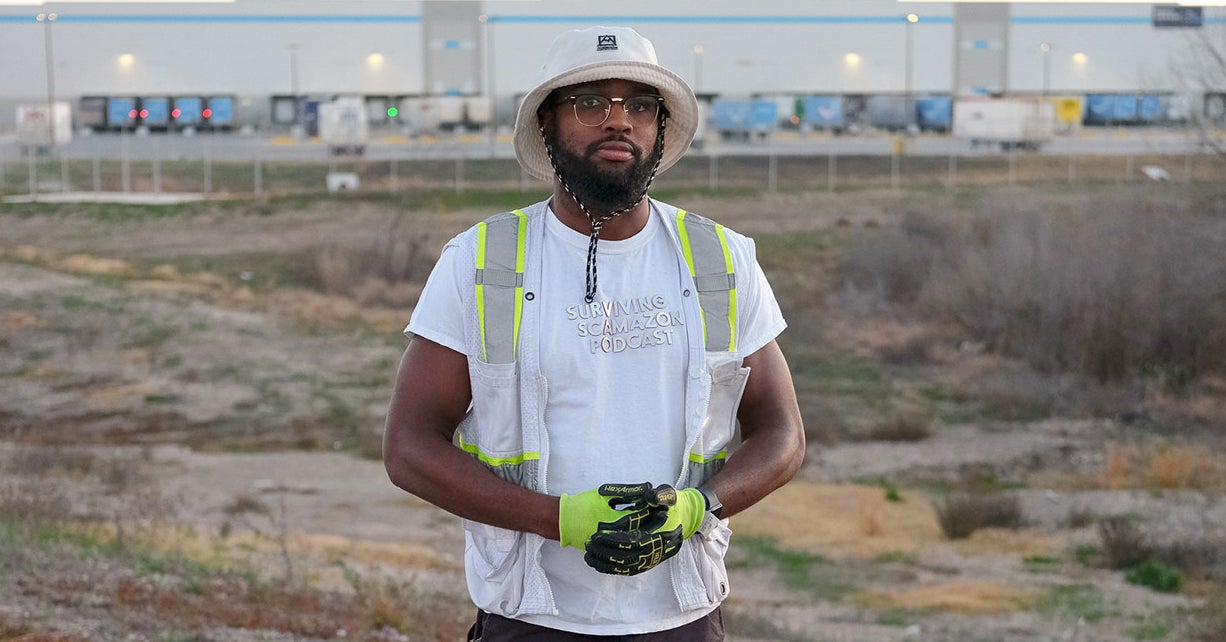In May 2022, a significant and unprecedented event took place during Amazon’s annual shareholders meeting. For the first time, a warehouse worker, Daniel Olayiwola, a 29-year-old employed in San Antonio, stepped forward to introduce a proposal. What made this even more notable was that Olayiwola, despite being a minor shareholder, having acquired some vested stock options, was among those typically overshadowed by major investors whose primary focus traditionally revolves around enhancing company profits and dividends.
The format of the meeting was virtual, and in the concluding segments, the moderator presented a pre-recorded two-minute statement from Olayiwola. In this recording, Olayiwola articulated a bold proposal aimed at addressing what he termed as the company’s “injury crisis”. He voiced a need to abolish productivity quotas and surveillance measures that, he argued, compelled workers to prioritize speed over safety. This fear-driven environment, he suggested, not only jeopardized worker safety but also threatened job security.
“I’ve personally felt the physical toll of working for Amazon,” Olayiwola shared in his statement. “I’ve seen my coworkers work themselves to exhaustion.” The resolution he presented was bolstered by various citations including news investigations, scientific research, and a government inspection report, all of which painted a concerning picture of higher injury rates at Amazon warehouses compared to non-Amazon facilities, sometimes even breaching labor laws.
In the lead-up to the meeting, Amazon had circulated an overview to its shareholders which appeared to counter these allegations. The document highlighted a decline in the company’s “worker incident rate” since 2019, underscoring what it described as a “relentless focus on health and safety training, engagement with employees, and refinement of our processes to improve working conditions.” Furthermore, Amazon underscored its commitment through competitive compensation and benefits aimed at supporting employees’ well-being and success.
In his response to inquiries regarding this story, Amazon’s spokesman, Sam Stephenson defended the company’s established productivity expectations and the use of surveillance. He explained that these practices align with peer performance, adherence to safe work practices, and are commonly adopted across major retailers globally, ostensibly to ensure employee safety, maintain inventory quality, and prevent theft.
Following the airing of Olayiwola’s statement, there was a palpable silence. The meeting’s moderator then indicated Amazon’s recommendation for shareholders to vote against the resolution — advice that was largely heeded, resulting in the proposal’s rejection.
Olayiwola admitted to being apprehensive about potential repercussions for his bold move. “I was super scared about speaking out for the longest, but I was thinking, like, ‘Dude, they’ve already fired everyone you know. Just consider yourself fired,’” he expressed. Despite harboring fears of potential termination, Olayiwola resolved to speak out while he still had the opportunity.
Amazon, via spokesman Stephenson, clarified that Olayiwola’s job was not at risk as the company does not tolerate any form of retaliation. Nonetheless, uncertainties lingered for Olayiwola, who was unsure of what awaited him at the warehouse the following week. Surprisingly, a manager approached him and, rather than reprimand, expressed respect for his courage to speak up. However, the manager also noted that despite the challenges, a job at Amazon was arguably better than many alternatives.
Olayiwola retained his position but saw none of his proposals implemented. Motivated by this experience, he initiated a podcast titled “Surviving Scamazon,” where he uploaded episodes to YouTube. These episodes, which ranged from two to ten minutes, shed light on various company policies and their impacts on workers. Despite not drawing large audiences or featuring polished production, the podcast stood out as an important voice from a non-unionized, low-wage worker willing to publicly challenge the practices of his employer.
In addition to his podcast, over the past year, Olayiwola has participated in multiple interviews, penned an op-ed for Fortune, and volunteered as a leader for United for Respect, an advocacy group championing the rights of retail workers. He expressed, “Everybody was so scared about speaking out… I felt like I had to do something to inspire others to tell their experiences working at Amazon.”
This narrative underscores not just a personal journey but a critical spotlight on the intersections of corporate practice, worker rights, and the quest for a more equitable workplace environment.









